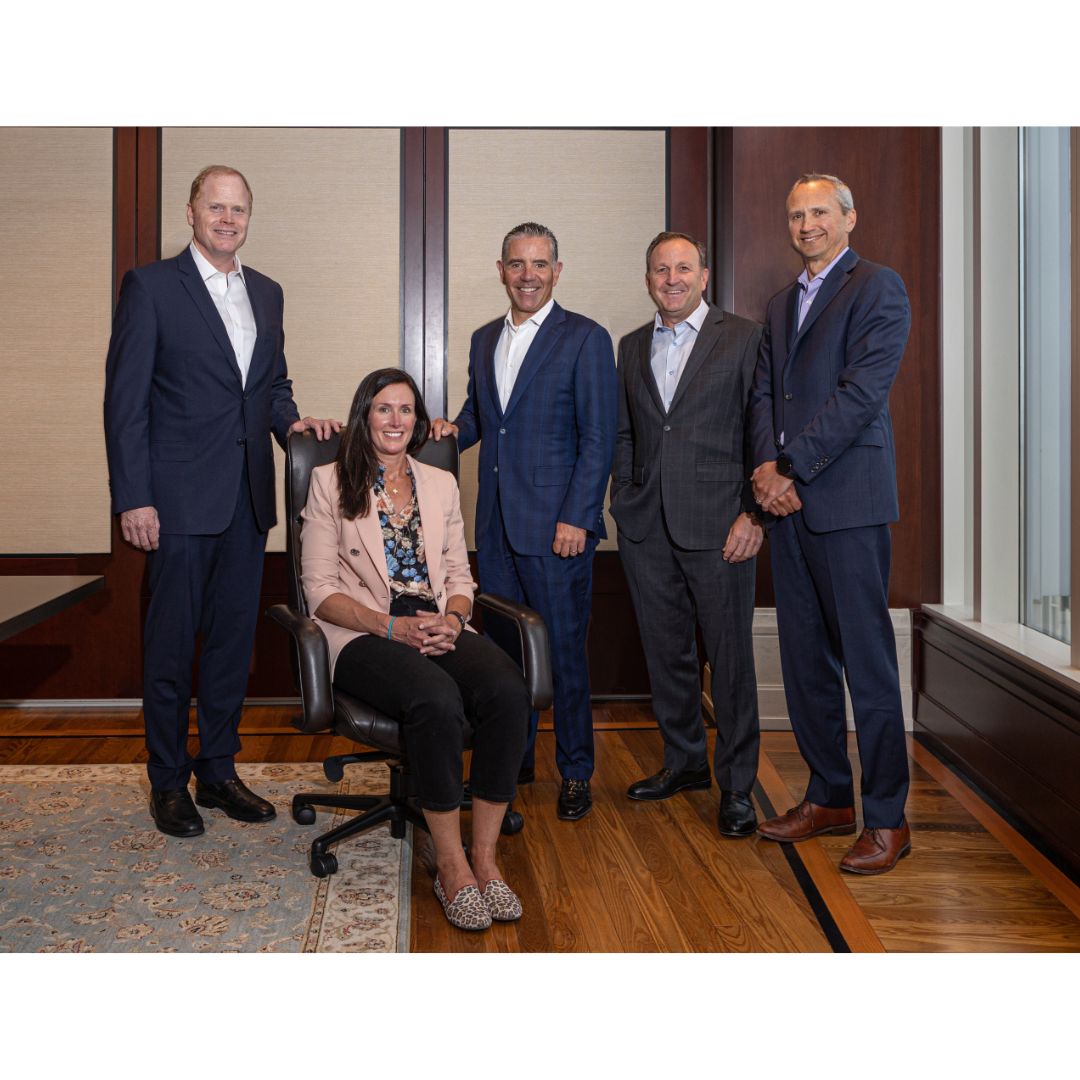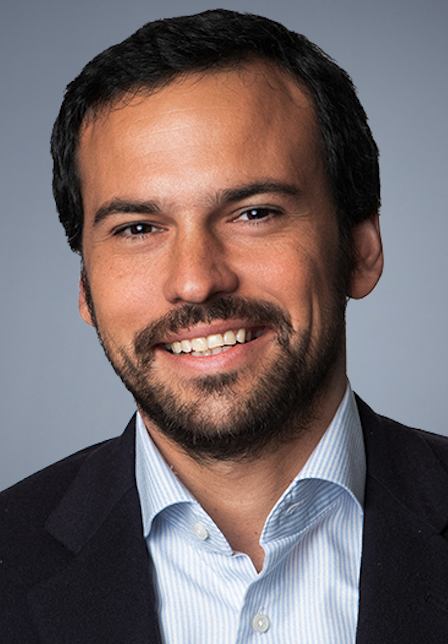There are long periods when investors simply and plainly turn their backs on fundamentals. But just as there are people immune to trends, there are asset managers capable of distancing themselves from the surrounding noise. One of them is MFS, a firm celebrating 100 years in 2024, amidst a market regime change that theoretically will favor its investment culture.
When everything is turned upside down and decades of economic doctrine no longer hold in day-to-day reality, managers like MFS serve as an anchor because they adhere to fundamentals and remain steadfast in their convictions. They survived the 1929 crisis and all those that followed. In this very unique 21st century, they aim to weather the rise of passive management, as Mike W. Roberge, CEO of the company since 2017, explains.
“The next 30 years will not look like the last 30. And looking at the next five or ten years, we expect markets to be more challenging, with more volatility. Central bank policies are now much more symmetrical. Because it was sort of a one-way trend, with interest rates only going down for a very long time. But now there are changes, such as higher inflation, a new dynamic in globalization, and higher rates. And so our view is that the significant advantage that passive investing had over active investing will be partly neutralized,” says Roberge.
The concentration of equity indices in the United States has created more risk, according to the firm.
“Clients should ask themselves if the benchmark index is the right measure, right?” says the MFS CEO. “Because if, in the past year, they’ve slightly underperformed the benchmark index and the markets are still up 20%, what’s the correct metric—absolute or relative performance of what is a risky benchmark index?” adds Roberge.
Time is the investor’s best ally
Through what MFS does and doesn’t do, Mike W. Roberge defines the firm’s policy: “We remain committed to what we do, which is long-term active management. We believe it is very difficult to identify what will work in the short term and then figure out how to capitalize on that. It’s much easier for us to identify trends and the companies we own. That’s why we haven’t made any acquisitions, entered the alternative assets market, or launched passive products, because ultimately we believe there are many options, and we want to stay very focused on what we do well.”
“We believe we manage risk well, and the market hasn’t worried about risk for a long time. I can guarantee you that the one thing that is cyclical is risk—it will return, people will start to worry about risk again, and we haven’t reached that point yet, but we believe it’s inevitable,” adds Roberge.
Rob Almeida, Global Strategist at MFS, believes the market “is entering a new regime or a different paradigm, where we will learn that the direction of interest rates is not what matters to investors.” According to the expert, there are risks in the market that investors are not properly assessing due to this mindset: “I think investors have been trained over the last 15 years to believe that central banks drive risk assets. But central banks don’t create wealth. Companies create wealth.”
Contrary to the widespread perception in the market that, if stocks and bonds crashed in 2022 due to the sharp rise in interest rates, they should now perform better with the first rate cuts, Almeida emphasizes the need to stay grounded and conduct thorough fundamental analysis to understand risks and opportunities: “Every financial asset in the world is simply a representation of future cash flows, that is, the return on capital. Returns on capital have been at historic highs over the past 15 years not because of robust economic growth, but due to the massive suppression of costs via low interest rates and globalization, and both trends have come to an end.”
Fundamentals Matter
Risk management has been in MFS’s DNA since the creation of the first open-end fund in modern history, the Massachusetts Investors Trust (MIT), launched in 1924, exactly a century ago.
It was the Roaring Twenties, and business was booming in the United States as the stock market began a continuous rise toward historic highs.
Families wanted to invest, but the market was somewhat “wild” and unregulated; all funds were closed-end (and opaque) until Edward Leffler, one of MFS’s early managers, conceived a more ethical and transparent investment vehicle: a fund that could issue additional shares if new investors were interested in the product and, most importantly, could guarantee shareholders the right to sell their shares back to the fund at any time. In short, managing risk by taking the risk of launching a vehicle never before seen in the market.
At the time, it was a bold move, and since then, MFS’s long-term and prudent approach has placed it among the most conservative asset managers.
Being resistant to trends doesn’t mean being unwilling to change. Since that early paper version of the MIT, the definition of diversification has evolved, Massachusetts has become small in the world, and MFS has grown into a global investor that can have strong U.S. strategies but can also compete in European equities. Overall, MFS manages $600 billion on behalf of its clients (as of December 2023).
Maintaining an ethical code and an open mind is the work of Alison O’Neill, Co-CIO of Equity and portfolio manager of the famous MIT. What’s it like to have a century of experience behind you when investing? The words the expert repeats most during the interview are “philosophy and team.”
“If we look over time, most of our managers are also investors. And we try to maintain that balance because most of us came into this industry because we loved investing,” says O’Neill.
“MIT has always prided itself on working closely with our global research platform. That’s probably what has changed the most since its inception. When it started, there were a handful of people in Boston who made up that research team, but now we have a global presence, with eight global sector teams composed of members from all over the world,” she adds.
The MFS Co-CIO talks about “intellectual leadership” when it comes to identifying new stocks to buy, through comparisons between companies in different geographies, evaluating fundamentals, and identifying the most attractive companies within different regions. Many of these companies compete globally.
Trends matter, but always through that careful (almost microscopic) analysis of companies to form a picture of the world. It’s globalization, MFS style.
Alison O’Neill explains: “In general, as part of building MIT, we try to be more or less sector-neutral. So, we don’t make significant sector bets unless we see very attractive or unattractive fundamentals on the other side. For example, within industrials, at this moment, we have a slight overweight in capital goods because we’ve identified several interesting companies. Thinking about reshoring after the COVID-19 pandemic supply chain disruptions, many companies realized they wanted to bring their supply chains closer to where they are producing and selling to customers. So, we identified several names within industrials around this theme, which led to a slight overweight in capital goods.”
Regarding U.S. equities, with the concentration in the so-called “Magnificent 7,” MFS’s investment team does its own curation, overweighting some companies but not investing in others. On the other hand, the asset manager remains firm in its investments in the U.S. infrastructure sector, where it foresees a necessary modernization.
“We meet with companies all the time, with management teams, CEOs, and CFOs,” says O’Neill. What MFS is seeing are increasing issues within the lower-income consumer segment in the U.S., but at the same time, a resilient labor market, where no significant waves of layoffs have been detected.
Disruption is the only constant
According to MFS, every generation has its disruptors, and over the past 100 years, the asset manager has invested in numerous examples. Television was invented in the 1920s, although its widespread adoption didn’t come until the 1950s. Cable brought hundreds of channels in the 1980s, but today, streaming services continue to grow their market share. During this process, established operators were challenged by competition, and new companies and sectors emerged in the market.
This serves as a reminder that while the development of new technologies is unstoppable, their long-term impact is not always clear from the start. And this brings us to Artificial Intelligence, the hot asset of 2024.
“We’re at a point where we need to ensure that the investment people are making is really paying off in terms of return. Therefore, we believe that at first, there was a kind of arms race where everyone wanted to order as many high-powered chips from semiconductor companies as they could. But as companies begin to use them, they must ensure that a return is actually generated, or else it makes no sense,” says the Co-CIO of MFS.
“All companies are telling us that AI will help with costs, efficiency, and productivity. On the other hand, what AI is already doing is increasing competition, and that’s the part the market isn’t thinking about,” says Rob Almeida, the Global Strategist of MFS.
He uses large-cap consumer staples companies as an example, which used to rely on their large balance sheets as their main competitive advantage; now, Almeida believes that thanks to AI, entry barriers have been lowered due to the cost reductions that AI brings. This allows companies to launch products, promote them, and sell them directly to consumers at very affordable costs.
In line with this, the expert explains that MFS has found investment opportunities within the software segment over the past year and a half: “We want to ensure that we don’t have software companies whose value proposition is no longer viable, because AI is going to offer the same service for free.”
“We’re also finding opportunities in companies that supply components to improve the power grid, as AI is expected to increase energy consumption,” he adds.
MFS CEO Mike Roberge speaks about the adoption of AI within the asset manager itself: “I think we’re in an AI hype curve, and what usually happens is that things go up and down, and then ultimately, it’s like the internet. It revolutionized how we worked 30 years ago, but most of the pioneering companies no longer exist today. We’re going to go through the same with AI, so it doesn’t make sense for all companies in the world to spend money on AI. We’ll be users of the best technology, but we’re testing it.”




 By Fórmate a Fondo
By Fórmate a Fondo